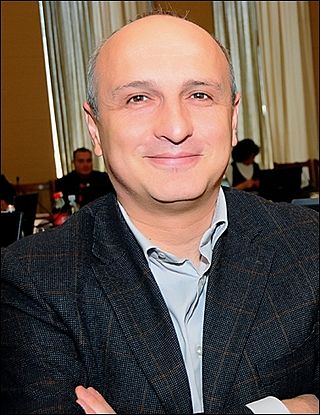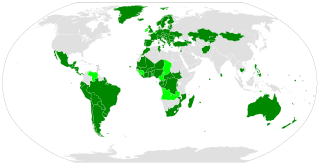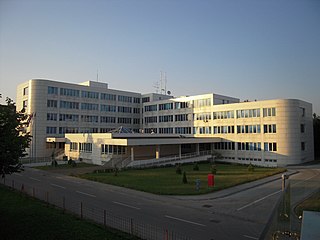Founding
The CPT was founded on the basis of the European Convention for the Prevention of Torture and Inhuman or Degrading Treatment or Punishment (1987), which came into force in February 1989. It allows the CPT to visit all "places of detention" of the member states of the Council of Europe. Places of detention, as defined by the convention, are all places in which people are held without their consent. In the first place, this covers police cells, jails, prisons and closed psychiatric institutions, but also immigration detention centres, old people's homes and the like. The visits are carried out by small teams of CPT members, who usually call-in additional experts. After each visit, a report about the findings and recommendations is drawn up and sent to the respective government. The findings deal not so much with individual cases of torture but with the identification of situations at risk that may lead to torture. The CPT reports are confidential and are published only if the government so requests. But political pressure on the governments is strong to make the report public. Only in the rare case in which governments refuse to publish and the CPT has clear evidence of a practice of torture, the CPT may make a unilateral "public statement".
All Council of Europe member states have ratified the Convention for the Prevention of Torture. Protocol No. 1 to the convention, which entered into force on 1 March 2002, provides for non-member states of the Council of Europe to accede to the convention, but none have been invited to do so to date.
After 20 years of experience, this European model was adapted and generalised by the United Nations through the OPCAT optional protocol to the UN Convention Against Torture (2006).
Members of the CPT are independent and impartial experts from a variety of backgrounds, including law, medicine and the justice system. They are elected for a four-year term by the Committee of Ministers, the Council of Europe's decision-making body, and can be re-elected twice. One member is elected in respect of each member state.
A system of visits
Visits are carried out by delegations, usually of two or more CPT members, accompanied by members of the committee's Secretariat and, if necessary, by experts and interpreters. The member elected in respect of the country being visited does not join the delegation.
CPT delegations visit contracting states periodically but may organise additional "ad hoc" visits if necessary. The committee must notify the state concerned but need not specify the period between notification and the actual visit, which, in exceptional circumstances, may be carried out immediately after notification. Governments' objections to the time or place of a visit can only be justified on grounds of national defence, public safety, serious disorder, the medical condition of a person or that an urgent interrogation relating to a serious crime is in progress. In such cases the state must immediately take steps to enable the committee to visit as soon as possible.
Unlimited access, co-operation, and confidentiality
Under the convention, CPT delegations have unlimited access to places of detention and the right to move inside such places without restriction. They interview persons deprived of their liberty in private and communicate freely with anyone who can provide information.
The recommendations which the CPT may formulate on the basis of facts found during the visit, are included in a report which is sent to the state concerned. This report is the starting point for an ongoing dialogue with the state concerned.
The CPT has two guiding principles: co-operation and confidentiality. Co-operation with the national authority is at the heart of the convention, since the aim is to protect persons deprived of their liberty rather than to condemn states for abuses. The committee therefore meets in camera and its reports are strictly confidential. Nevertheless, if a country fails to co-operate or refuses to improve the situation in the light of the committee's recommendations, the CPT may decide to make a public statement.
Of course, the state itself may request publication of the committee's report, together with its comments. In addition, the CPT draws up a general report on its activities every year, which is made public.
International human rights instruments are the treaties and other international texts that serve as legal sources for international human rights law and the protection of human rights in general. There are many varying types, but most can be classified into two broad categories: declarations, adopted by bodies such as the United Nations General Assembly, which are by nature declaratory, so not legally-binding although they may be politically authoritative and very well-respected soft law;, and often express guiding principles; and conventions that are multi-party treaties that are designed to become legally binding, usually include prescriptive and very specific language, and usually are concluded by a long procedure that frequently requires ratification by each states' legislature. Lesser known are some "recommendations" which are similar to conventions in being multilaterally agreed, yet cannot be ratified, and serve to set common standards. There may also be administrative guidelines that are agreed multilaterally by states, as well as the statutes of tribunals or other institutions. A specific prescription or principle from any of these various international instruments can, over time, attain the status of customary international law whether it is specifically accepted by a state or not, just because it is well-recognized and followed over a sufficiently long time.

Ivane "Vano" Merabishvili is a Georgian politician and 9th Prime Minister of Georgia from 4 July to 25 October 2012. A former NGO activist, he became directly involved in Georgia's politics in 1999 and emerged as one of the government's most influential members after the 2003 Rose Revolution, especially as Georgia's Minister of Internal Affairs.

The International Rehabilitation Council for Torture Victims (IRCT) is an independent, international health professional organization that promotes and supports the rehabilitation of torture victims and works for the prevention of torture worldwide. Based in Denmark, the IRCT is the umbrella organization for over 160 independent torture rehabilitation organizations in 76 countries that treat and assist torture survivors and their families. They advocate for holistic rehabilitation for all victims of torture, which can include access to justice, reparations, and medical, psychological, and psycho-social counseling. The IRCT does this through strengthening the capacity of their membership, enabling an improved policy environment for torture victims, and generating and share knowledge on issues related to the rehabilitation of torture victims. Professionals at the IRCT rehabilitation centers and programs provide treatment for an estimated 100,000 survivors of torture every year. Victims receive multidisciplinary support including medical and psychological care and legal aid. The aim of the rehabilitation process is to empower torture survivors to resume as full a life as possible. In 1988, IRCT, along with founder Inge Genefke, was given the Right Livelihood Award "for helping those whose lives have been shattered by torture to regain their health and personality."

The Optional Protocol to the Convention Against Torture and Other Cruel, Inhuman or Degrading Treatment or Punishment is a treaty that supplements to the 1984 United Nations Convention Against Torture. It establishes an international inspection system for places of detention modeled on the system that has existed in Europe since 1987.
The European Convention for the Prevention of Torture and Inhuman or Degrading Treatment or Punishment was adopted by the member states of the Council of Europe, meeting at Strasbourg on 26 November 1987. After the European Convention on Human Rights, the Convention for the Prevention of Torture is widely regarded as being one of the most important of the Council of Europe's treaties. The Convention marks a fresh and preventive approach in handling human rights violations. It was subsequently amended by two Protocols. Additionally, the Committee for the Prevention of Torture was established to comply with the provisions of the convention. This body is enabled to visit any place within the jurisdiction of the states' parties where people are deprived of their liberty in line with the articles of the convention.

The Police Directorate of Montenegro is the national police of Montenegro.

The Ministry of Interior of Republika Srpska is the interior ministry of the Republika Srpska.
Pavshyno is a village in Mukachevo Raion, Zakarpattia Oblast and a suburb of Mukachevo. Pavshyno is the site of a "Temporary Detention Centre" for refugees.
In Italian law, Article 41-bis of the Prison Administration Act, also known as carcere duro, is a provision that allows the Minister of Justice or the Minister of the Interior to suspend certain prison regulations and impose practically a complete isolation upon a prisoner. It is used against people imprisoned for particular crimes, such as Mafia-type association under 416-bis, drug trafficking, homicide, aggravated robbery and extortion, kidnapping, terrorism, and attempting to subvert the constitutional system. It is suspended only when a prisoner co-operates with the authorities, when a court annuls it, or when a prisoner dies.
Rodney Emrys Morgan was Criminology lecturer at the University of Bath in the early 1980s and is Professor Emeritus, University of Bristol and Visiting Professor at the University of Sussex. He is the former chair of the Youth Justice Board for England and Wales (2004-7) and prior to that was HM Chief Inspector of Probation for England and Wales (2001-4).
Article 3 of the European Convention on Human Rights prohibits torture, and "inhuman or degrading treatment or punishment".
Article 3 – Prohibition of torture
No one shall be subjected to torture or to inhuman or degrading treatment or punishment.
F-Type-Prisons, officially called F-type High Security Closed Institutions for the Execution of Sentences, are high-security closed prisons designated by Turkish Law 5275 on the Execution of Sentences.
The widespread and systematic use of torture in Turkey goes back to the Ottoman Empire. After the foundation of the Republic of Turkey, torture of civilians by the Turkish Armed Forces and Turkish police was widespread during the Dersim rebellion. The Sansaryan Han police headquarters and Harbiye Military Prison in Istanbul became known for torture in the 1940s. Amnesty International (AI) first documented Turkish torture after the 1971 Turkish coup d'état and has continued to issue critical reports, particularly after the outbreak of the Kurdish-Turkish conflict in the 1980s. The Committee for the Prevention of Torture has issued critical reports on the extent of torture in Turkey since the 1990s. The Stockholm Center for Freedom published a report entitled Mass Torture and Ill-Treatment in Turkey in June 2017. The Human Rights Foundation of Turkey estimates there are around one million victims of torture in Turkey.
The Association for the Prevention of Torture (APT) is an international non-government organization focused on the prevention of torture and other acts considered as cruel, inhuman or degrading treatment. The organization was founded in 1977 by Jean-Jacques Gautier under the name Swiss Committee against Torture.
Prisoners' rights in international law are found in a number of international treaties. For the most part these treaties came into existence following the two World Wars and the body of law continues to be added to and amended.
A prison is a place where people condemned to a custodial sentence or awaiting their trial are held against their will. Prisons are also used to try to reintegrate inmates into society in order to prevent recidivism. French prisons are overflowing and the penitentiary personnel is understaffed. In 2003 the European Committee for the Prevention of Torture (CPT), an organ of the European Council reported "inhumane and degrading treatment" in French prisons.

The Committee Against Torture (CAT) is a treaty body of human rights experts that monitors implementation of the United Nations Convention against Torture by state parties. The committee is one of eight UN-linked human rights treaty bodies. All state parties are obliged under the convention to submit regular reports to the CAT on how rights are being implemented. Upon ratifying the convention, states must submit a report within one year, after which they are obliged to report every four years. The committee examines each report and addresses its concerns and recommendations to the state party in the form of "concluding observations." Under certain circumstances, the CAT may consider complaints or communications from individuals claiming that their rights under the convention have been violated.
In September 1967, Denmark, Norway, Sweden and the Netherlands brought the Greek case to the European Commission of Human Rights, alleging violations of the European Convention of Human Rights (ECHR) by the Greek junta, which had taken power earlier that year. In 1969, the Commission found serious violations, including torture; the junta reacted by withdrawing from the Council of Europe. The case received significant press coverage and was "one of the most famous cases in the Convention's history", according to legal scholar Ed Bates.
The prohibition of torture is a peremptory norm in public international law—meaning that it is forbidden under all circumstances—as well as being forbidden by international treaties such as the United Nations Convention Against Torture.

Abdullah Öcalan has been imprisoned on İmralı Island in the Sea of Marmara since February 1999. He is serving a life sentence for violating Article 125 of the Turkish Penal Code. Initially, he was sentenced to death, but the conviction was commuted to a life sentence in October 2002.






